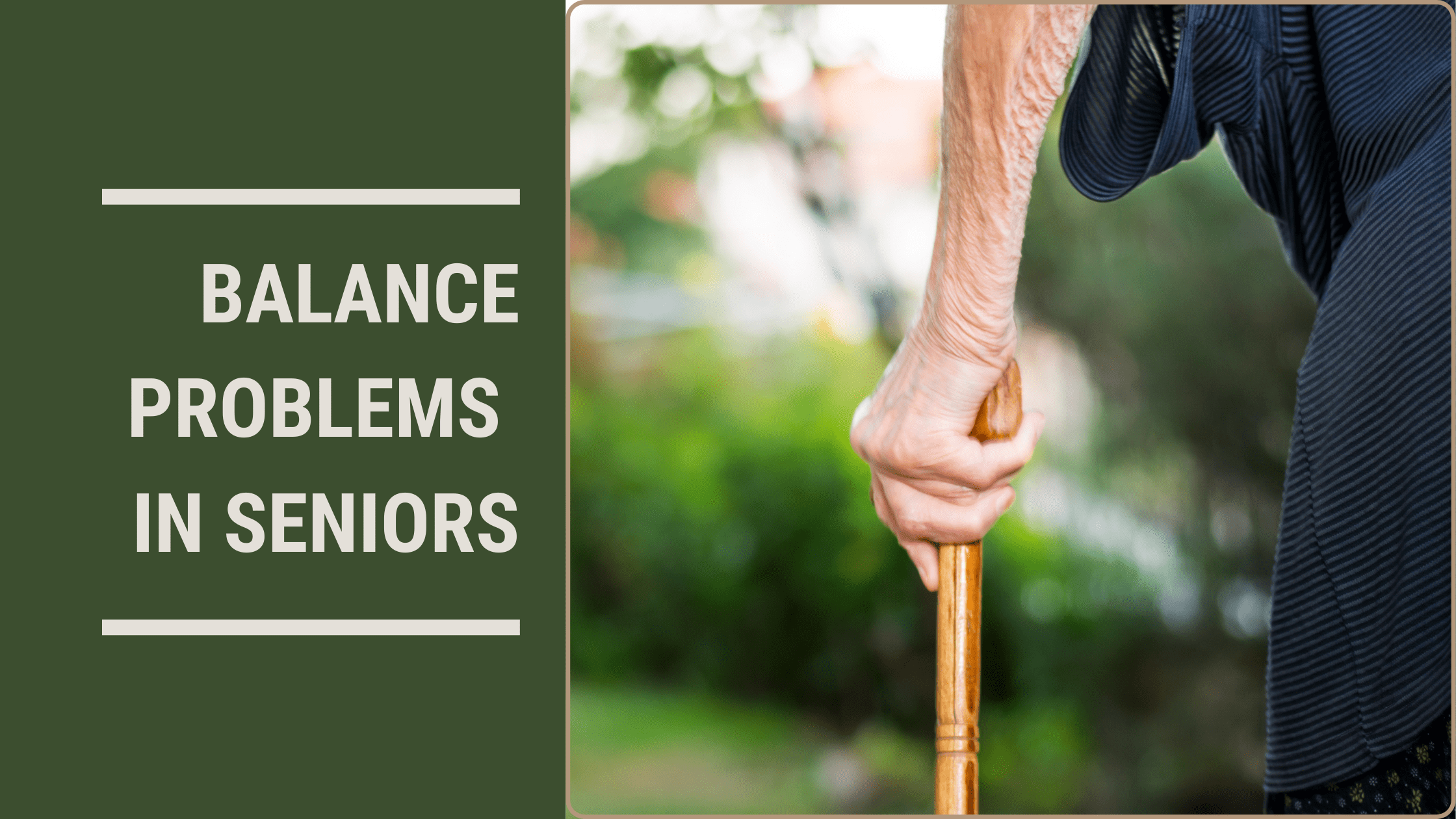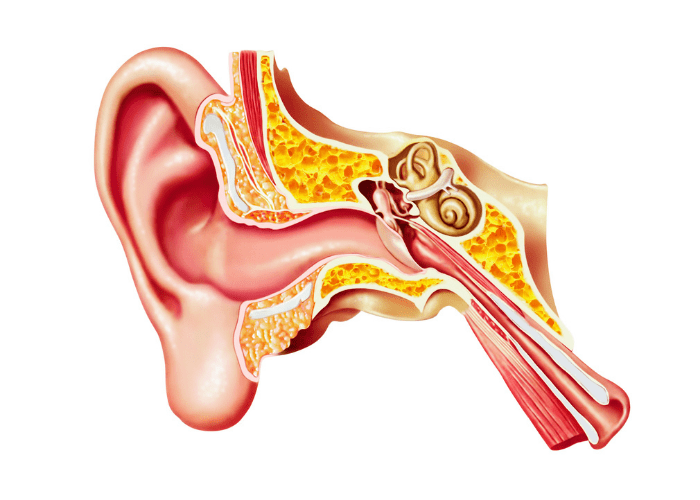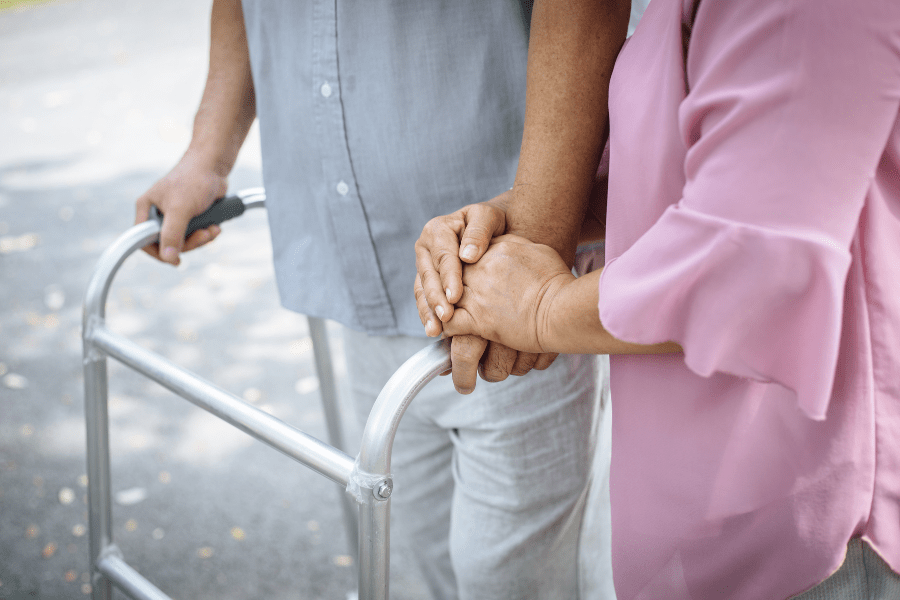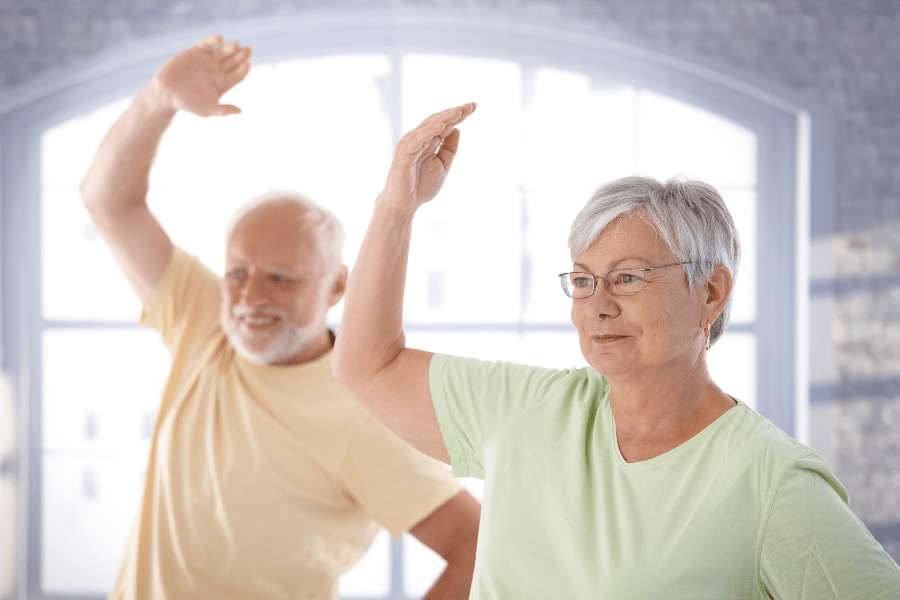
Balance problems are among the most common issues for seniors. In addition, they pose a severe safety concern due to the increased risk of falls. Because of this, both caregivers and their loved ones should address the issue before something disastrous happens.
Modified March 22, 2023
What Causes Balance Problems In Seniors?
Balance problems in seniors often occur with age, even for those with good health. Loss of balance happens for various reasons, such as stiff or damaged joints or something more serious such as a neurological condition. However, inner ear problems are the most common culprit.
The vestibular system, or the labyrinth, is a part of the inner ear that controls balance. When this system is infected or inflamed (a condition known as Labyrinthitis), it causes vertigo, which causes sensations such as dizziness or spinning. Typically, Labyrinthitis is the result of another illness or disease, including:
- Head injuries
- Medication
- Upper respiratory infections
- Viral infections (sometimes bacterial infections)
- Circulatory system problems, such as strokes or low blood pressure
Elders who experience balance loss from medication should talk to their doctor and request a replacement. However, a lower dosage might be necessary if no substitute is available.

“Good balance means being able to control and maintain your body's position, whether you are moving or remaining still. Good balance helps you walk without staggering, get up from a chair without falling, climb stairs without tripping, and bend over without falling. Good balance is important to help you get around, stay independent, and carry out daily activities.”
National Institute on Aging
Signs Of Balance Problems In Seniors
Older adults with a balance disorder may stumble while walking or struggle to stand up unassisted, or they might experience other symptoms of balance disorders, such as:
- Blurry vision
- Confusion
- Diarrhea
- Vertigo or dizziness
- Nausea and vomiting
- Fear, anxiety, or panic
- The sensation of falling
- Heart rate and blood pressure fluctuations
- Feelings of lightheadedness, faintness, or floating
These symptoms can be temporary or last for an extended period. Eventually, untreated balance problems in seniors can cause fatigue and depression.
How To Identify Balance Problems
Below are questions developed by the NIA to help caregivers identify balance problems in seniors. If any of these apply to your loved one, you should talk to their doctor sooner rather than later.
Does your loved one feel…
- Unsteady?
- Like the room around them is spinning, even temporarily?
- As if they are moving, despite standing still?
- As if they are falling or about to fall?
- Lightheaded or faint?
- Confused, or that they are losing their perception of time, place, or self?
- Like their vision is blurry?
- That they fall more than usual?
Once you talk to your parent’s doctor, they may refer you to a specialist since they can better support your loved one’s needs. For example, in some cases, balance problems in seniors can be an undiagnosed condition such as multiple sclerosis or ear infection. Sometimes, treating these issues can help older adults regain their balance.
Ways Elders Can Cope With Balance Disorders
Older adults shouldn’t ignore their balance problems. Instead, they should talk to their doctor about their ability to drive and ideas to reduce their chance of falling while taking the stairs, using the bathroom, exercising, and other routine activities.
Sometimes, balance problems in seniors can be lifelong. In this case, your parent might seek a vestibular rehabilitation therapist. They work with you and your loved one to create a treatment plan to maintain their quality of life.
Besides seeing a specialist, older adults with balance problems should:
- Avoid walking in dark or dimly-lit rooms.
- Wear low-heeled and properly-fitted footwear.
- Use a walker or cane.
- Install handrails and other assistive devices in their home.

Information & Resources About Balance Problems In Seniors
Below are three resources for family caregivers who want more information about balance problems in seniors.
How Caregivers Can Help Olders Adults Manage Balance Problems
Here are a few simple ways family and professional caregivers can support an older adult who struggles with balance.
1. Address Health Problems That Cause Balance Problems
Many health conditions can lead to balance problems in seniors can be the result of several health conditions, such as:
- Strokes
- Diminished vision
- Arthritis
- Inner ear damage
- Nerve damage
- High blood pressure
- Prescription medication
- Dizziness
Don’t hesitate to talk to your parent’s doctor about your concerns. After all, it’s the first step toward managing this issue and improving your loved one’s wellbeing.
2. Make Balance Exercises Part Of Your Routine
Unfortunately, exercise can’t reverse balance problems in seniors caused by inner ear issues. However, it can promote minute changes in older adults’ muscles and nerve signals that regulate balance. Over time, routine balance exercises build strength and nerve connections, leading to better balance in seniors.
There are many balance exercises for seniors, such as:
- Walking heel-to-toe
- Standing on one leg
- Tai chi
Of course, older adults should avoid practicing these exercises alone, especially if they have serious balance problems. Seniors with severe balance loss should consider seeing a physical therapist.

3. Support A Healthy Lifestyle
An inactive lifestyle can significantly contribute to many health concerns, including balance problems in seniors. Caregivers can help elders regain or improve their balance by supporting healthy lifestyle changes such as:
- Avoiding alcohol
- Staying hydrated
- Lowering sodium intake
- Regulating blood pressure
Weight loss is never easy, but it can significantly benefit elders’ balance. Caregivers can help by providing nutritious meals and encouraging activities such as indoor exercises for seniors.
4. Install Assistive Devices
If your loved one is aging in place, consider installing assistive devices such as:
- Walkers and canes
- Handles near toilets or showers
- Motorized chairs that lift to help older adults get on their feet easier
These devices can go a long way to promote your aging parent’s safety, especially if their balance continues to decline.
5. Remove Obstacles In The Home
If your parent is experiencing balance loss while aging in place, you should remove any obstacles that could lead to a fall, such as minor elevation changes, including doorway thresholds or floor mats in front of sinks.
Start by going through your loved one’s home and noting potential hazards such as loose railings, uneven porch steps, or loose rugs. Next, move or get rid of any objects in the way of walkways, particularly those in high-traffic areas.
MeetCaregivers Can Help Manage Balance Problems In Seniors
Balance problems in seniors are a serious concern because of the heightened fall risk. You should address these issues to avoid a potential injury, such as talking to your parent’s doctor or care team. Additionally, you can encourage your loved ones to make healthy lifestyle choices that support their wellbeing, independence, and quality of life.
If you need some peace of mind while your parent ages in place, MeetCaregivers can help. Our qualified caregivers can assist with various tasks such as activities of daily living, balance exercises, transportation, and more. For more information, call 1 (888) 541-1136 or find a caregiver today.
For more information about senior health and safety, visit the Blog.
Balance problems in seniors are a serious concern because of the heightened fall risk. You should take steps to address these issues to avoid a potential injury, such as talking to your parent’s doctor or care team. Additionally, you can encourage your loved ones to make healthy lifestyle choices that support their wellbeing, independence, and quality of life.
If you need some peace of mind while your parent ages in place, MeetCaregivers can help. Our qualified caregivers can assist with various tasks such as activities of daily living, balance exercises, transportation, and more. For more information, call 1-888-541-1136 or contact us online.
If you want more information about senior health and safety, visit the Blog.
- “Balance Problems and Disorders.” National Institute on Aging, U.S. Department of Health and Human Services, www.nia.nih.gov/health/balance-problems-and-disorders.
- Kunnath, Angie. “5 Tips for Treating Balance Issues in Seniors.” Home Care Assistance Oakville, 6 Dec. 2018, www.homecareassistanceoakville.ca/addressing-balance-issues-in-the-elderly/.
